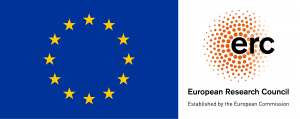Recent Posts
-
The results of our work
This section will host the tangible outcomes of our team’s scientific efforts in studying the most recent articulations of the notion of sanctity: conference papers, journal articles, book chapters, and […]
-
An online guide to our field of study
This section will host a series of introductory posts to semiotics and to the semiotics of religion. Different textual genres (definitions, bibliographies, summaries, interviews etc.) and different types of semiotic resources […]
-
Cfp – Lexia 31-32: Semiotics of Martyrdom
In the framework of the project NeMoSanctI, we are preparing an issue of “Lexia”, the international journal of semiotics, centered on the theme “The Semiotics of Martyrdom”. Contributions are expected […]
-
Presenting the book Donne sugli Altari
The PI, Jenny Ponzo, is taking part in the presentation of the book Donne sugli altari: Le canonizzazioni femminili di Giovanni Paolo II, by Valentina Ciciliot (Viella, March 2018), which will take place […]
-
At the international symposium A la luz de Roma
On September 19th, 2018, Dr. Eleonora Rai is taking part the international symposium A la luz de Roma. Santos y santidad en el barroco iberoamericano, held at Roma Tre University, with a talk […]
-
On Donna Moderna
The national weekly magazine “Donna Moderna” devotes two pages to NeMoSanctI. You can download and read the interview at the following link:
-
Humanities in a day
On June 13th, 2018, in the frame of the event “Humanities in a Day” (University of Turin), NeMoSanctI is presented as one of the main elements of the semiotic research at the […]
-
Ancient and Artificial Languages in Today’s Culture
More info at the following link: http://www.aracne.tv/evento/EV5144.html.
-
On the Corriere della Sera
The national newspaper “Il Corriere della Sera” devotes one page to NeMoSanctI. You can download and read the interview at the following link:
-
Curia romana e comunità locali nella modellizzazione della santità (secoli XVI-XX)
More info at the following link on Academia.edu.
What is NeMoSanctI?

NeMoSanctI is a research project carried out at the University of Turin. It studies how models of sanctity have changed after the Second Vatican Council. To this end, it applies a pioneering methodology based on semiotic theory to a wide corpus of normative, judicial, and narrative texts.
This project has received funding from the European Research Council (ERC) under the European Union’s Horizon 2020 research and innovation programme (grant agreement No 757314).
Categories
- Book Presentation (3)
- Book Presentation (4)
- Call for Papers (3)
- Coronavirus (2)
- Events (128)
- Forma Sanctitatis (4)
- News (88)
- Press Review (14)
- Public engagement (38)
- Publications (62)
- Research (135)
- Semiotics of Religion (132)
- Uncategorized (16)
- Video (15)
- Website (6)
Recent Posts
- Articles – Jenny Ponzo and Francesco Galofaro in “Silver Age. Nuove culture della vecchiaia” (Carte Semiotiche 2024/1).
- At the Puebla Seminar on contemporary religious practices
- At the seminar “La rappresentazione della compassione: tra semiotica e studi letterari”
- Chapter – Paolo Bertetti: “Biblioteche, reliquie e altre memorie di culture perdute. La conservazione del passato nella letteratura post-apocalittica”, in “Le biblioteche della fantascienza: utopie, distopie, intelligenze artificiali” (Milano, Editrice Bibliografica, 2024).
- Book – J. Ponzo, S. Stano (eds.), I media e le icone culturali (Saggi di Lexia, 2024)
